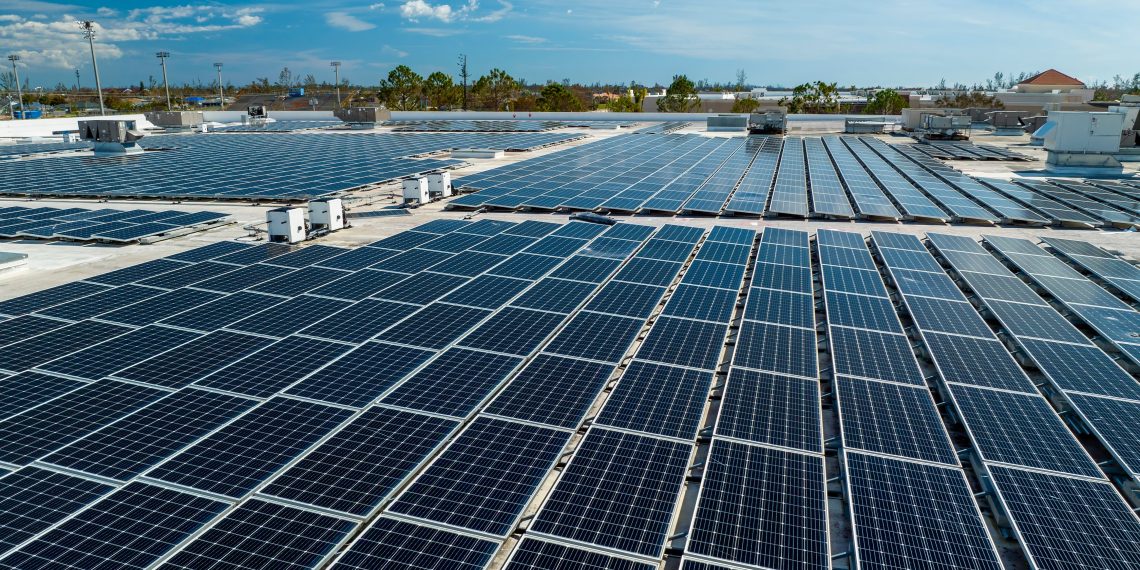The skyline of Lagos, Nigeria’s bustling metropolis, is increasingly peppered with solar panels, a testament to the city’s embrace of clean energy. Less than ten years ago, the climate technology landscape in Africa was vastly different, with startups struggling to secure the capital necessary to power the region’s electrification ambitions.
However, the investment climate has significantly evolved. In recent years, venture capital and private equity firms have poured over $3.4 billion into climate-tech startups on the continent since 2019.
One such beneficiary of this influx of funds is Rensource Energy. The company offers solar and battery power subscriptions to both individuals and businesses, tapping into the growing market for sustainable energy solutions.
“The problem with fossil fuel generation in Sub-Saharan Africa, particularly in West and Central Africa, is the massive carbon emissions that harm our atmosphere. What businesses like ours aim to do is provide clean and sustainable energy at a scale comparable to the grid or large diesel generators,” explains CEO Prince Ojeabulu.
Finding financial support initially proved challenging as investors needed to be persuaded of the viability of the business model.
“Breaking the perception barrier was tough, but we had early backers who believed in the potential of the solar industry. They foresaw the significant investments, technological advancements, and cost reductions that have now come to fruition,” Ojeabulu reflects.
Nonetheless, the continent still faces a significant financing gap, needing $277 billion annually to meet its 2030 climate goals, per Africa: The Big Deal. Experts suggest that to unlock further financing, African nations must mitigate risks such as currency instability, which deters investors.
Investors are also encouraged to broaden their focus beyond traditional areas and consider sectors like flood protection, disaster, and heat management. They are also advised to diversify their funding approaches.
According to Ojeabulu, as the industry has expanded, funding has become more selective, focusing on specific segments within the value chain.
“In 2015, renewable energy attracted a lot of venture capital and grants. The strategy was to secure patient capital to foster growth. Now, the industry is tighter, and we see a distinction between successful and unsuccessful businesses,” he says.
The investment numbers remain impressive, with climate tech startups in Africa raising $1.04 billion last year—a 9% increase from the previous year and triple the amount raised in 2019, despite a decline in overall startup funding on the continent.
This surge in climate tech funding, which accounted for more than a third of all startup funding in Africa in 2023, is significant as it enables the necessary experimentation and risk-taking. Climate tech now ranks second only to the more established fintech sector.
Venture capital is vital for businesses with high risks and strong growth potential, helping startups expand into new markets and launch products and services.
Ojeabulu emphasizes that companies now need more than initial seed capital for financing.
“Venture capitalists in Africa are doing fantastic work. The challenge now is for larger investors to take on risks that VCs can’t, which will help scale companies that are moving beyond the seed capital and VC stages and address the problems at hand,” he states.
Aside from venture capital, an array of investors including private equity firms, syndicates, venture builders, and grant providers are actively supporting climate initiatives in Africa.
Yet, private sector financing still trails public financing, which includes government, multilateral, and development finance institution funds. From 2019 to 2020, private sector financing made up only 14% of all climate finance in Africa, a stark contrast to regions like East Asia and the Pacific at 39%, and Latin America and the Caribbean at 49%.
This disparity is attributed to investors favoring familiar areas such as renewable energy technology and shying away from adaptation technology like flood defenses. However, there is growing recognition of the economic benefits of adapting to climate change and the return on investment it can bring.









